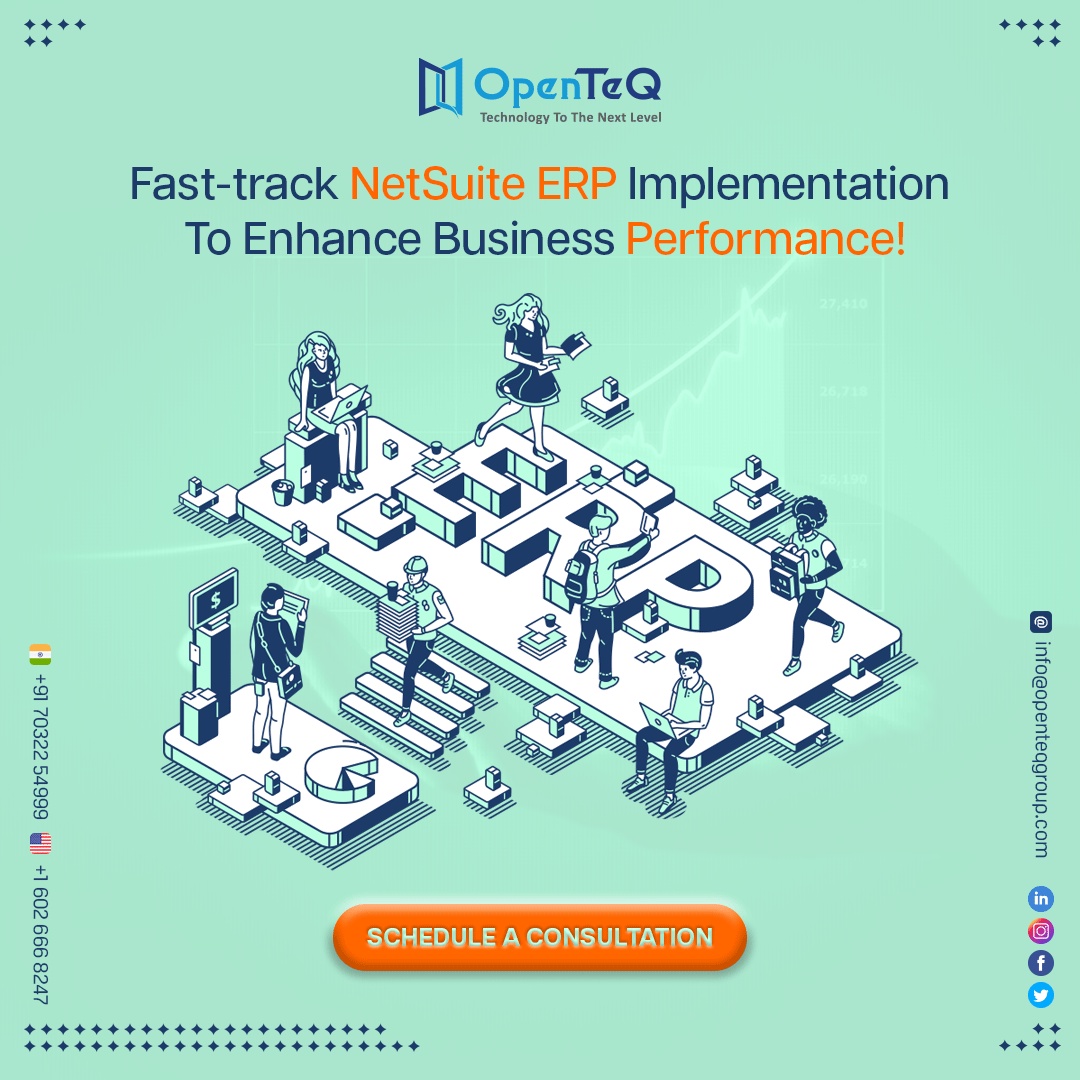In today's competitive business landscape, having a robust and integrated system for managing your operations is no longer a luxury, it's a necessity. This is where NetSuite ERP comes in, offering a comprehensive cloud-based solution to streamline core processes and gain real-time insights across your entire organization.
However, implementing NetSuite ERP effectively requires careful planning and execution. Here's what you need to know to navigate this process successfully:
Understanding NetSuite ERP:
NetSuite ERP is an all-in-one cloud solution that empowers businesses to manage various critical functions, including:
Financial Management: Automate accounting tasks, improve financial reporting, and gain real-time visibility into your financial health.
Inventory Management: Track inventory levels across your supply chain, optimize stock levels, and reduce carrying costs.
Order Management: Streamline the order processing cycle, minimize errors, and improve customer satisfaction.
Supply Chain Management: Gain control over your supply chain, from procurement to fulfillment, ensuring timely deliveries.
Customer Relationship Management (CRM): Enhance customer relationships by managing interactions, sales opportunities, and service requests effectively (Note: NetSuite CRM is a separate product that can be integrated with NetSuite ERP).
The NetSuite ERP Implementation Journey:
A successful NetSuite ERP implementation typically involves several key phases:
Discovery and Planning: This initial stage involves defining your business goals, assessing your current systems and processes, and outlining the implementation scope.
Design and Configuration: Here, your chosen NetSuite partner will configure the system to meet your specific needs, including customizing modules and integrating with existing systems.
Development and Testing: Data migration, user training, and extensive testing occur to ensure a smooth transition to the new system.
Deployment and Go-Live: The NetSuite ERP system is launched, and your team begins using it to manage your operations.
Ongoing Support and Optimization: Your NetSuite partner provides ongoing support and helps you optimize the system for continuous improvement.
Benefits of a Successful NetSuite ERP Implementation:
By implementing NetSuite ERP effectively, you can expect to reap numerous benefits, including:
- Improved operational efficiency and productivity
- Enhanced visibility and control over your business
- Reduced costs and increased profitability
- Improved customer satisfaction and loyalty
- Scalability to accommodate future growth
Key Features of NetSuite CRM:
Centralized Customer Data: Gain a unified view of your customers, including their contact information, sales history, and interactions across different touchpoints.
Streamlined Sales Process: Automate tasks, manage leads and opportunities effectively, and improve sales forecasting accuracy.
Enhanced Customer Service: Deliver exceptional service by tracking support requests, resolving issues efficiently, and fostering customer loyalty.
Marketing Automation: Automate marketing campaigns, personalize messaging, and measure campaign performance to optimize your marketing efforts.
Benefits of Integrating NetSuite CRM with NetSuite ERP:
Seamless Data Flow: Eliminate data silos and ensure consistency across NetSuite CRM and ERP data, enabling informed decision-making.
Improved Customer Experience: Provide a more personalized and cohesive experience to your customers by connecting sales, marketing, and service activities.
Increased Efficiency: Eliminate manual data entry and streamline workflows between CRM and ERP functions.
Enhanced Visibility: Gain a holistic view of your entire business, from customer interactions to financial performance.
Leveraging NetSuite Partners for Successful Implementation:
NetSuite partners play a crucial role in both NetSuite ERP and NetSuite CRM implementations. They possess the expertise to:
- Assess your business needs and recommend the optimal solution.
- Configure and customize the system to align with your specific requirements.
- Migrate data seamlessly and ensure a smooth transition.
- Provide ongoing support and training to maximize your return on investment (ROI).
Conclusion:
the success of a NetSuite ERP implementation, especially when integrated with NetSuite CRM by OpenTeQ, hinges on effectively addressing these key considerations and ensuring alignment with the organization's strategic goals and objectives. By focusing on user adoption, data integrity, system performance, process optimization, ROI analysis, lessons learned, and ongoing support, businesses can maximize the value derived from their investment in NetSuite's enterprise solutions.
The adoption of NetSuite CRM facilitated by a trusted NetSuite Partner like OpenTeQ signifies a transformative step towards enhancing organizational efficiency, fostering deeper customer engagement, and elevating overall business performance. Through the seamless implementation of NetSuite CRM, businesses are empowered with a robust platform meticulously tailored to streamline every facet of customer relationship management.


No comments yet